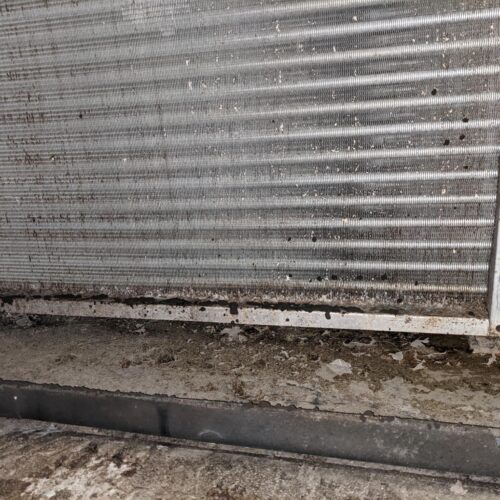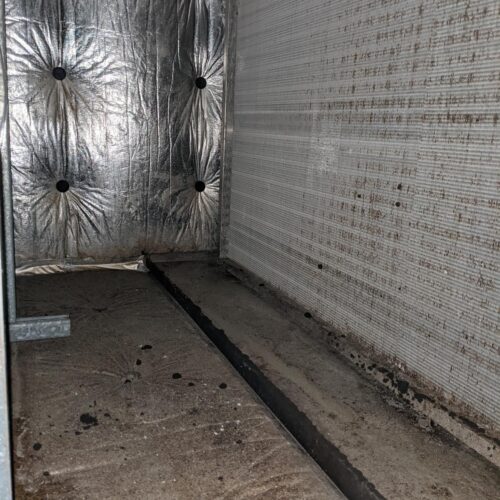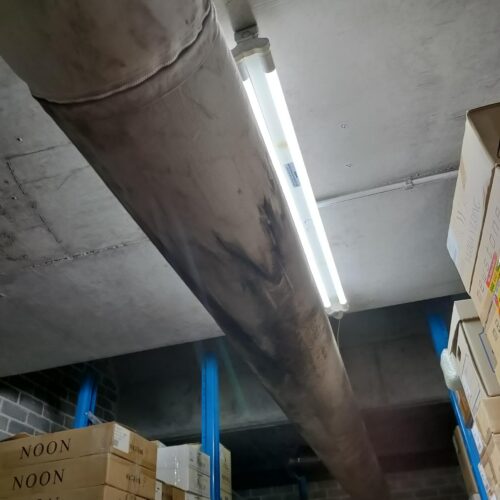Every day, students, educators and business managers take for granted the quality of air that they breathe from heating, ventilation air conditioning (“HVAC”)
“Inadequate ventilation systems in Australian schools have led to elevated levels of CO2 and particulate matter, which negatively impact student concentration and overall health. About 25% of students reported symptoms like headaches and fatigue, attributed to poor air quality in classrooms.”
Ventilation and Indoor Air Quality in Australian Schools. Source: University of New South Wales Research Group (2012)
“The presence of excessive mould spores in HVAC systems has been shown to exacerbate respiratory conditions and other health issues. In schools and office buildings affected by mould, there was a notable 25% increase in reported respiratory symptoms and absenteeism among students and staff.”
Indoor Mould and Its Effects on Public Health: A Study of Australian Schools and Offices. Source: University of Sydney (2020)
Anecdotally, at LRM Global, we find that many organisations misguidedly assume that regular servicing of the HVAC systems does include treatment and rectification of any contamination build up in their HVAC systems. Often, this is not the case.
Generally, students, educators, other staff and business managers are simply not aware of the deterioration that can occur in HVAC units of all shapes and sizes. Nor are they aware of the potential health consequences of their oversight.
Regularly, the effectiveness of climate control functionality, or otherwise, provides the main trigger initiating the need for servicing, and determining the scope of servicing that is required.
We assume that the air quality that we breathe each day in our Schools, Tafe’s and Universities is healthy.
The only way to assure your students, staff, patrons and administrators that air quality is conducive to optimum performance is ongoing indoor Air Quality Monitoring.
Ongoing indoor Air Quality Monitoring measures, assesses, reports on and responds to the quality of air being ingested by all members of your fraternity. Any abnormalities in air quality are outlined to the appropriate person in your administration, inclusive of recommended rectification strategies.
It really is simple; the benefits of ongoing indoor Air Quality Monitoring are universal.
Students, (parents) and staff:
- Peace of mind,
- Increased health, welfare and vitality,
- Increased productivity,
- Increased student engagement,
- Increased student retention,
- Increased sense of accomplishment,
- Reduced absenteeism,
- More positive culture,
- Academic results are likely to improve in this environment
- Improved results, optimised culture = increased new student/parent attraction
- Risk mitigation/management
Business Managers and Owners:
- Peace of mind
- All the benefits of greater staff satisfaction and engagement
- Stronger organisational culture
- Risk mitigation / management
School Leaders, Patrons and Administrators:
- Peace of mind
- Improved school reputation
- Reduced litigious risk
- Access to improved insurance rate opportunities
- Risk mitigation / management
The solution is not a difficult consideration, protect your investment in students, staff, reputation and performance
Prevent the problem by early monitoring or mitigate the issue by early identification and response initiatives – Both make sense.
Contact LRM Global, the specialists in Environmental and Industrial Hygiene Management, to guide your indoor Air Quality Monitoring initiatives or to assist you to optimise, design or implement your customer and staff health risk management strategies.




